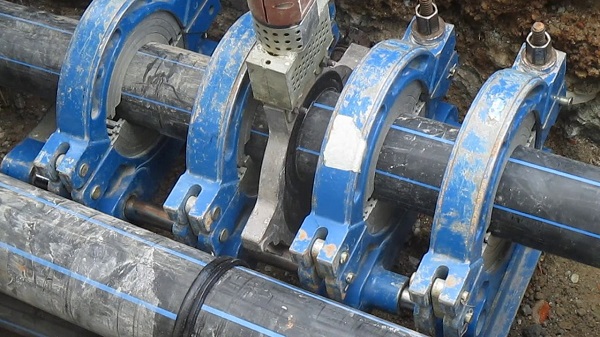- In Brief
- Overcoming challenge of Non Revenue Water is a big task in Africa
- HDPE pipes can not only help address the issue of non-revenue water but also a great investment especially for water utilities
High-density polyethylene (HDPE ) pipes have gained prominence in recent years especially due to their enormous advantages.
These pipes are being used to carry potable water, wastewater, slurries, chemicals, hazardous wastes, and compressed gases. In fact, polyethylene pipes have a long and distinguished history of service to the gas, oil, mining and other industries.
Various studies have shown that HDPE pipes have the lowest repair frequency per mile of pipe per year compared with all other pressure pipe materials used for urban gas distribution.
The toughness and resistance to chemicals of polyethylene, as well as the corrosion resistance and low weight have contributed to its growing use.
HDPE technology has been used in countries such as the US and Australia for decades contrary to Africa where its usage is just budding. In Kenya, companies are slowly shifting to the use of HDPE from the most common PVC, a synthetic thermoplastic material made by polymerizing vinyl chloride.
Mr Peter Gichaaga Managing Director at Nyeri Water and Sanitation Company (Nyewasco) who says that one of the reasons why the utility has been able to offer excellent services to customers while maintaining sustainability on the side of the company is by turning to HDPE Pipes.
“These pipes have helped us bring non-revenue water levels down to 16% in 2019, compared to the national average of 41%. And we see this as a major achievement in our work as it gives us the opportunity to serve our customers efficiently as well as boost our self sustainability,” shares Mr Gichaaga.
NRW is water that has been produced and is lost before it reaches the customer.
Non-revenue water presents a considerable challenge to the financial viability of African water utilities. Recent studies suggest non revenue water in sub-Saharan Africa stands at around 14 million m3/d.
This is approximately 64 litres a day for each person supplied – an amount far higher than the water readily available for individuals in many parts of the continent. The cost of these losses in Africa has been estimated at a shocking $1.4bn per year.
In Kenya, about Sh7.8 billion is lost to non-revenue water annually according to Water Services Regulatory Board.
Perhaps one of the most important aspects of HDPE pipe is that it has very high flow capacity, because of its smooth bore and end-to-end jointing methods.
HDPE pipe does not corrode in the environment, and will maintain its flow capabilities over time, unlike ferrous piping systems, which will rust and build up internal resistance to fluid flowing through it.
Due to their tough nature, HDPE pipes are long lasting an advantage that has saved utilities replacement costs.
Also Read
How COVID-19 pandemic is reshaping cities
Cape Town almost ran out of water. Here’s how it averted the crisis

